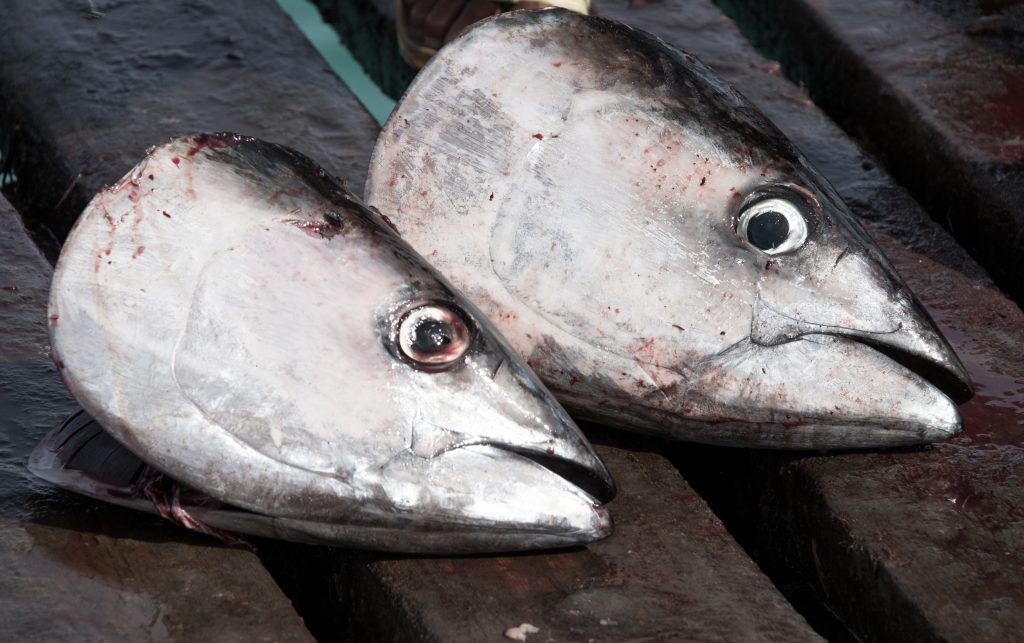The aquaculture industry heavily relies on capture fisheries for the supply of fish feed ingredients. As fish feeds account for the highest operating cost of fish farming, a lot of research has been directed to the development of fish protein substitutes to reduce the dependence of aquaculture industry on wild catch fisheries and operating costs.
A recent study carried out by Korean researchers investigated the potentiality of the use of tuna by-products as a fish-meal replacement in the diet of Nile tilapia (Oreochromis niloticus).
Tilapia are aquatic organisms with moderate protein requirements. Still fish protein makes up 10% of tilapia diet. Feeding costs in an intensive fish farm may reach up to 70% of the production costs in tilapia farming operations.
One of the traditional ingredients used to develop protein diets is fish meal. The traditional source of this ingredient is small pelagic fish, mostly sardines and anchovies, that have high economic and environmental costs. Fish processing and filleting industries turn out large quantities of fish waste, in the form of head, bones, gills, tails, viscera, etc. This by-product is a good source of protein, fat and minerals, and converted into fish meal can represent a more economically and environmentally sustainable source of fish proteins, being cheaper and avoiding additional pressure on wild capture fisheries.
Solid wastes generated by the tuna canning industry can be as high as 65% of the original material. However, tuna and similar marine top predators accumulate large amounts of heavy metals, especially cadmium and mercury, in their body. These chemicals can be harmful to human health and the pathways from fish feed to human body are unknown. Therefore, caution is required with the use of tuna by products.
The researchers of the Korean Advanced Institute of Science and Technology tracked the concentrations of cadmium and mercury in tilapia body and investigated the effects on growth performance of using tuna by products as fish meal replacement.
Tuna by products were confirmed safe for use as fish meal in tilapia aquaculture, because they did not affect the overall growth performance (including fish body composition), and their acceptable ranges for cadmium and mercury consequently did not exceed the food safety values, despite their proportional increases in the fish body.
Overall, the use of tuna by products as a protein source in tilapia aquaculture is expected to reduce the cost of feed products with other fishmeal substitutes, while improving the sustainability of tilapia farming.


